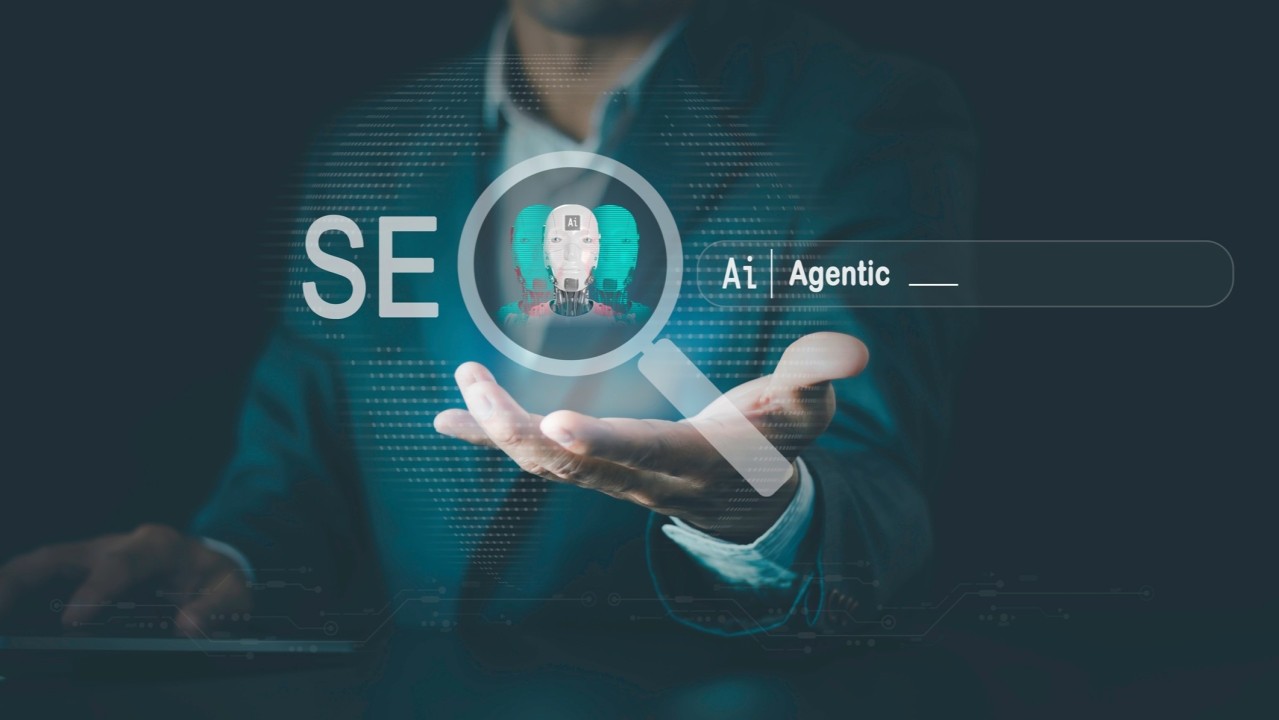News
Reputation Management: Protecting and Enhancing Your Brand Online
A business’s reputation is more fragile than ever. With the proliferation of social media, review platforms, and the instantaneous nature of online communication, a company’s reputation can be shaped—and potentially shattered—within moments. Reputation management, therefore, has become a critical component of business strategy, especially for those looking to protect and enhance their brand online.
Digital marketing agencies play a pivotal role in this process. Through strategic digital marketing efforts, these agencies help businesses manage their online presence, mitigate negative publicity, and cultivate a positive brand image that resonates with consumers. This article will delve into the intricacies of reputation management, examining the strategies that digital marketing agencies employ to protect and enhance a business’s reputation online, while also highlighting the importance of these efforts in the broader context of brand management.
The Importance of Online Reputation
The internet has revolutionised how consumers interact with brands. With just a few clicks, potential customers can access reviews, testimonials, and social media comments about a business. This wealth of information can significantly influence purchasing decisions. A study by BrightLocal in 2023 found that 87% of consumers in the UK read online reviews for local businesses, with 79% of them trusting online reviews as much as personal recommendations. This statistic underscores the critical role that online reputation plays in shaping consumer behaviour.
For businesses, an unfavourable online reputation can lead to lost sales, diminished customer trust, and even long-term damage to the brand. Conversely, a positive online presence can attract new customers, foster loyalty, and enhance the overall value of the brand. Given the stakes, businesses must actively manage their online reputation, ensuring that their digital footprint reflects the values and quality they aspire to uphold.
Key Components of Reputation Management
Reputation management is a multifaceted process that involves monitoring, influencing, and responding to how a business is perceived online. The key components of this process include:
- Online Presence Monitoring: Keeping track of what is being said about the business across various online platforms, including social media, review sites, and forums.
- Content Creation and Management: Producing and distributing content that positively reflects the brand and counters any negative perceptions.
- Engagement and Response: Actively engaging with customers and responding to reviews, comments, and social media mentions in a timely and constructive manner.
- Crisis Management: Addressing and mitigating the impact of any negative publicity or incidents that could harm the brand’s reputation.
- Search Engine Optimisation (SEO): Ensuring that positive content ranks highly in search engine results, thereby influencing how the brand is perceived by those who search for it online.
The Role of Digital Marketing Agencies
Digital marketing agencies are well-equipped to manage these components effectively, leveraging their expertise in digital strategy, content creation, and online analytics to protect and enhance a business’s reputation. Their approach is typically holistic, encompassing a range of tactics designed to address the various aspects of reputation management.
1. Monitoring and Analytics
The first step in effective reputation management is understanding the current state of the business’s online reputation. Digital marketing agencies utilise advanced monitoring tools and analytics to track mentions of the brand across the internet. This includes social media platforms, review sites like Trustpilot and Google Reviews, forums, and even news articles.
By continuously monitoring these sources, agencies can identify potential issues before they escalate into major problems. For example, if a sudden spike in negative reviews is detected, the agency can investigate the cause and recommend appropriate actions to the business. Moreover, monitoring also allows agencies to track the effectiveness of their reputation management efforts, adjusting strategies as needed to achieve the desired results.
2. Content Creation and Management
Content is a powerful tool in shaping public perception. Through strategic content creation, digital marketing agencies can influence how a business is viewed online. This might involve producing blog posts, articles, social media updates, videos, and other forms of content that highlight the positive aspects of the brand.
For instance, if a business is known for its exceptional customer service, the agency might create case studies or testimonials that showcase this strength. Similarly, they might produce content that aligns the brand with positive values, such as sustainability or community involvement. This not only enhances the brand’s image but also helps to build trust with consumers.
In addition to creating new content, agencies also manage existing content to ensure it remains relevant and accurate. This might involve updating old blog posts, optimising content for search engines, or managing the business’s social media profiles to ensure a consistent and positive online presence.
3. Engagement and Response
Engaging with customers online is another critical aspect of reputation management. Digital marketing agencies can help businesses develop and implement strategies for interacting with customers on social media, review sites, and other online platforms. This engagement is crucial for several reasons:
- Building Relationships: Regular interaction with customers helps to build strong relationships, fostering loyalty and encouraging repeat business.
- Managing Negative Feedback: Negative reviews and comments are inevitable, but how a business responds to them can significantly impact its reputation. Agencies can assist in crafting thoughtful, constructive responses that address customer concerns while protecting the brand’s image.
- Encouraging Positive Reviews: Digital marketing agencies often implement strategies to encourage satisfied customers to leave positive reviews, thereby enhancing the business’s online reputation.
For example, a business might launch a campaign asking happy customers to share their experiences on review sites or social media, offering incentives such as discounts or giveaways in return. This not only boosts the number of positive reviews but also helps to counterbalance any negative feedback.
4. Crisis Management
No matter how carefully a business manages its reputation, crises can still occur. Whether it’s a product recall, a data breach, or a social media blunder, negative events can quickly spiral out of control if not handled properly. This is where digital marketing agencies truly demonstrate their value.
In a crisis, timing is critical. Digital marketing agencies can provide immediate support, helping businesses to respond quickly and effectively to minimise damage. This might involve issuing public statements, addressing customer concerns on social media, and working to ensure that positive content remains prominent in search results.
For instance, if a business faces a wave of negative press, the agency might launch a content marketing campaign to push positive stories about the brand. At the same time, they might work with search engine optimisation specialists to ensure that these positive stories rank highly, thereby mitigating the impact of negative coverage.
5. Search Engine Optimisation (SEO)
SEO plays a vital role in reputation management by controlling what appears when someone searches for the business online. A well-executed SEO strategy can ensure that positive content—such as favourable news articles, blog posts, and customer testimonials—appears prominently in search results, while negative content is pushed further down.
Digital marketing agencies typically employ several SEO tactics to manage a business’s online reputation:
- Content Optimisation: Ensuring that positive content is optimised for relevant keywords, making it more likely to appear in search results.
- Link Building: Acquiring high-quality backlinks to positive content, further boosting its search engine ranking.
- Reputation Management Pages: Creating dedicated pages that showcase the business’s strengths, such as “About Us” or “Customer Success Stories” pages, and optimising these for search engines.
By carefully managing the business’s online presence through SEO, digital marketing agencies can significantly influence how the brand is perceived by potential customers.
The Future of Reputation Management
As technology continues to evolve, so too will the landscape of reputation management. Several emerging trends are likely to shape the future of this field, offering new opportunities and challenges for businesses and digital marketing agencies alike.
1. Artificial Intelligence (AI) and Automation
AI and automation are set to play an increasingly important role in reputation management. AI-powered tools can monitor online mentions in real-time, analyse sentiment, and even generate responses to common queries or concerns. This can significantly reduce the time and effort required to manage a business’s online reputation, allowing digital marketing agencies to focus on more strategic tasks.
For example, AI can help identify patterns in customer feedback, providing insights into common issues or areas for improvement. This data can then be used to inform content creation, customer engagement strategies, and crisis management plans.
2. The Rise of Video Content
Video content is becoming increasingly popular, and this trend is likely to continue. Businesses will need to adapt their reputation management strategies to include video content that highlights positive aspects of the brand. This might involve producing customer testimonial videos, behind-the-scenes footage, or explainer videos that showcase the company’s products and services.
Digital marketing agencies will play a key role in helping businesses to create and distribute high-quality video content that enhances their online reputation.
3. The Growing Importance of Social Media
Social media will continue to be a critical platform for reputation management. As more consumers turn to social media to voice their opinions and interact with brands, businesses will need to be even more proactive in managing their social media presence.
This will require a combination of real-time monitoring, strategic content creation, and active engagement with customers. Digital marketing agencies will need to stay ahead of social media trends and platform updates to ensure that their clients maintain a positive and engaging online presence.
4. Transparency and Authenticity
Consumers are increasingly demanding transparency and authenticity from the brands they support. Businesses that are open about their practices, values, and challenges are more likely to build trust with consumers, which in turn enhances their online reputation.
Digital marketing agencies will need to help businesses navigate this landscape by developing communication strategies that are transparent, authentic, and aligned with the brand’s values. This might involve sharing behind-the-scenes content, being open about challenges or setbacks, and engaging in meaningful conversations with customers.
In the digital age, reputation management is not just a necessity—it’s a critical component of business success. As the online landscape continues to evolve, the role of digital marketing agencies in protecting and enhancing a business’s reputation will become even more important. Through strategic digital marketing efforts, these agencies can help businesses to monitor their online presence, engage with customers, manage crises, and ultimately build a positive and enduring brand image.
For UK businesses, the importance of reputation management cannot be overstated. With consumers increasingly relying on online reviews and social media to inform their purchasing decisions, a strong online reputation can be the difference between success and failure. By working with experienced digital marketing agencies, businesses can ensure that their reputation is not only protected but also enhanced, paving the way for long-term success in the competitive digital marketplace.





The Ultimate Social Media Guide
With the ever-growing power of social media, we use the latest techniques, video, and animation software to craft eye-catching social media assets that make your brand pop. Our designers, wielding Adobe Creative tools, create distinctive animations and graphics to illuminate your brand story and highlight your products or services. Want a unique design? No problem – we also offer bespoke designs to match your brand aesthetic.